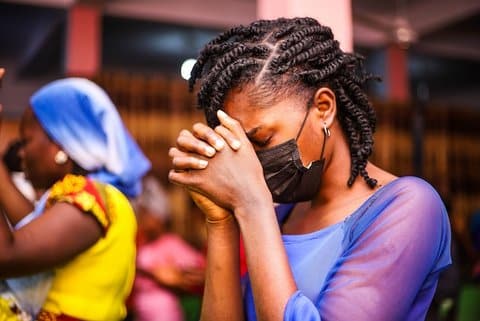
07 Sep Not My National Anthem – Young People of Color Weigh in

First person, Various Authors
Editor’s Note: San Francisco 49ers quarterback Colin Kaepernick sparked a national conversation when he refused to stand for the national anthem, saying he couldn’t “show pride in a flag for a country that oppresses black people and people of color.” The CC Pulse asked young people of color to reflect on their own relationship to the national anthem and the American flag, and found that many felt conflicted about respecting a country that didn’t seem to respect them. Here’s what they had to say.
The national anthem is about colonization
I never fully understood the national anthem as a child. The only time I would hear it was during a football or baseball game. As I grew older I started to realize the song was more about colonization and living a “true American lifestyle” in this western society. I’ve gotten to the point in my life where I no longer cover my heart or stand up when either the national anthem or the pledge of allegiance is being said, because it reminds me of my ancestors and all of the indigenous people who have fought and continue to fight for their right to live the traditional way of life but were forced not to due to the settlers who came over.
-Isabella Zizi, 22
Liberty and justice for some
Growing up as kids, we were told that the proper thing to do was to stand and pledge allegiance to the flag. From kindergarten through college graduation, we have repeatedly vowed our hearts to liberty and justice for all. Obviously we haven’t seen this happen.
Of course as a kid, when you are told to do something, you assume it’s the right thing to do, or you’ll be penalized for not doing so. That’s how you condition a slave to be obedient. Reward those who blend in, and penalize those who stand up. I stopped standing for that a long time ago.
There’s no point in arguing with any fool who still chooses not to acknowledge the hypocrisy and blatant brutality that this country is guilty of.
What we need to do, for those who stand with Kaepernick and other like minds, is keep supporting each other and find ways to bring the conversation to the public.
-Donte Clark, 26
Founded on hate
Growing up, my parents taught me the importance of respecting authority. It was normal for me growing up to rise when the pledge of allegiance started. However, as I grew older I realized there was no reason to value a flag and a pledge that were founded on hate. When I attend sporting events I still stand but I do not pledge as I did so diligently in my younger years.
As I grow older, I am more aware of the inequalities between different groups and the oppressive systems to put people in their place. Kaepernick stirred an important conversation and I do not think it should end there. He stood up for an important cause and I support his decision.
-Mitzi Perez, 22
I pledge allegiance to my ancestors
“Their blood has washed out their foul footsteps’ pollution. No refuge could save the hireling and slave from the terror of flight or the gloom of the grave.”-Frances Scott Key
This is a quote from the author of the National Anthem, Frances Scott Key. Key is referring to the slaves who joined forces with the British army in exchange for their freedom in the war of 1812. He saw blacks as beneath whites. Think of this in light of what has recently occurred in America today with Colin Kaepernick’s refusal to stand for the national anthem. Kaepernick’s character and American patriotism has been challenged, but I ask: Should we as Africans in America really stand for such an anthem and flag?
Despite the historical MAAFA (Black Holocaust of Enslavement) of black people in America, we are still expected to show gratitude to an anthem and flag that have not done shown us the same. The first official national flag, also known as “Stars and Stripes,” was approved by the Continental Congress on June 14, 1777. At this time, blacks were slaves and considered property in America. Between 1777 and 1960 (when the last new star was added to the flag for Hawaii’s statehood), black people have suffered and fought through slavery, Jim Crow laws and discrimination (i.e. redlining, block-busting, and predatory lending practices). Lest I fail to mention the assassination of some of our most prominent leaders (Dr. Martin Luther King, Jr. and Malcolm X). The national anthem and American flag may have different meanings, but for the (many) Africans in America, we see the 13 stripes (for the original thirteen colonies) as a reminder of what our ancestors went through. To us, red signifies the blood of our ancestors whose lives were stolen; white is our bondage in slavery; and blue symbolizes generations of tears we shed. The only stars my ancestor saw hope in were the ones they looked to in the sky. Our meaning of the national anthem and flag is a mixture of tragedy and tenacity. I pledge allegiance to my ancestors.
-Asani Shakur, 28
The words don’t apply to my people
I am a black woman and I do not stand for the national anthem or say the pledge of allegiance, because I do not believe the words apply to my people. For example, “Liberty and justice for all.” My people came to this country shackled, seen as less than human and undeserving of rights or freedom. I cannot pledge my allegiance to a country that has a history of injustice towards my people. America has enslaved, bombed, segregated, lynched, incarcerated, brutally murdered, and stolen rights from black people for centuries.
The national anthem has verses that celebrate the death of my ancestors. “No refuge could save the hireling and slave/ From the terror of flight or the gloom of the grave.” America is the “land of the free” yet my people were not free. In recent years, we have seen in America that black lives are not valued, we are seen as threats instead of people. Being in constant fear of your life or one of your family members’ lives is not freedom. Nor have I seen any reconciliation for the acts America has committed against black people. For all these reasons, I refuse to sing of America’s liberty and pledge allegiance to a flag that does not include my people.
-Anonymous, 19
This land was stolen
From South America to North America, there is a history of genocide, slavery, and evil. I have never identified with the American flag or national anthem because I studied history from more than a Eurocentric perspective; both of my parents have Native American heritage so they have always instilled in me that this land was forcibly stolen from my ancestors.
Growing up in multicultural San Francisco, nationalism was never really impressed upon me or taught. Even if it was, I would have rejected it. I never consistently stood or sang for any American nationalist propaganda. I consider myself a citizen of the world, but more importantly I understand that the Americas are in the control of the oppressors, not the rightful owners.
I believe all athletes of color should take a stand like Kaepernick because the youth idolize them more than they do intellectuals.
-Larry Dorsey, 25
I’m not considered an American
To be honest, I rarely think about the American flag. It doesn’t have much relevance to me. When I look at America’s history, I’ve never been considered an ally. I’ve never been told, “You’re one of us.” For years, the word “American” was considered a code word for “white people.” As a black person, you don’t identify with that. The schools stopped singing the national anthem and at that point, it died out for me. My mom was very neutral about the idea but she raised me towards religion. So the anthem was rarely a topic. I don’t sing the anthem, promote the flag or place my hand over my heart. For what? I’ve never been considered an American or treated with the same respect. Black Lives Matter is proof I’m not considered an American.
-Sean Shavers, 25






No Comments